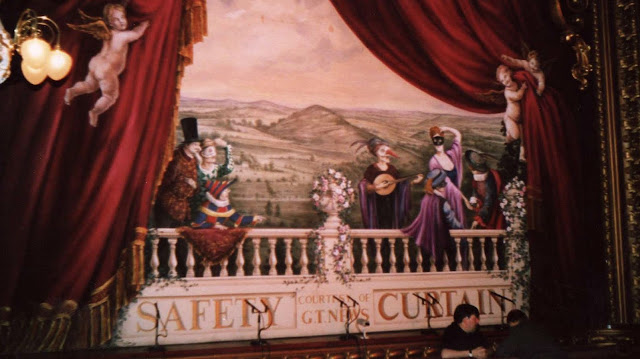The
life of bees, and even theoretical physics, are increasingly familiar
tropes in fiction and the drama.
Nick
Payne’s moving miniature watches these worlds collide, and the
boy-meets-girl story [girl-meets-girl in this production] is
refracted into infinite fragments, applying arcane elements of
relativity, quantum mechanics, string theory … But you don’t even
need GCSE science to share the laughter, the tears, the love and the
loss of this sometimes rocky relationship.
There
are constants for us to cling onto: two chance encounters, the
proposal, the diagnosis. But the brilliant writing opens doors onto
alternative worlds, “all the decisions you’ve ever/never made”,
playing variations on a scene, sometimes subtle, like minimalist
music, sometimes radical: the “no balloons, no photos” sequence,
for instance, is replayed in fluent BSL. The infidelity
recriminations variously involve a third party with a centre parting,
dandruff or scarcely any hair at all. Fragments make increasing sense
as they are replayed in context, like pieces of a jigsaw puzzle
slotting into place amongst the vast expanse of sky. Marianne’s
aphasia is flagged early - “faith” becomes “face”, “work”
becomes “walk”. But the full impact is held back until the
devastating later scene.
We
don’t see the forks in the road, there are no Sliding Doors, no
Ayckbourn tricks or conscious choices. Not even snap lighting changes
to signal the shifts – though Phil Wright’s lighting design
serves the play with sympathetic sensitivity.
What
we do get in Ria Milton’s finely honed production – bringing a
rare, almost flawless integrity to the amateur stage - is a physical
echo of the emotional changes – distance, height, body language all
give depth and texture to the drama. Before the big names hit the
West End and Broadway the piece played first in the tiny Jerwood at
the Royal Court. There’s a similar intimacy here; Laura Bradley’s
Marianne and Jennifer Burchett’s Rona are naturalistic, heartfelt
creations, the bee-keeper and the honey philistine. They wear their
roles lightly, inhabiting rather than performing their characters.
The
striking set – designed by Nick Mayes and realised by Iain
Holding-Sutton – is a window into the universe, evoking the
constellations of the title, and enabling some eloquent silhouettes
between the scenes.
Those
moments are also marked by chanteuse Nikita Eve. Like a Greek chorus,
she comments with snatches of song, chosen, with the director, to
highlight the changing nature of the relationship as it ravels and
unravels before us. Ingrid Michaelson’s Everybody [“wants to
love, wants to be loved”] bookends the play in a cosy singalong,
“Now
so long, Marianne/It's time that we began to laugh/And cry and cry
and laugh about it all again”
encapsulates the piece so beautifully it’s hard to believe Leonard
Cohen penned it long before the playwright was born, and “I will
follow you into the dark” [Death Cab for Cutie] is a poignant
refrain for the tragic twist to this Love Story.
As
with the Greek chorus, the question is if, and how, to integrate the
commentary into the action. Low-key contributions from stage right is
the answer here; they worked best when the guitar was substituted for
the slightly intrusive keyboard.
This
is by no means a gloomy evening in the theatre The seventy-five
minutes include bright joyful moments – Marianne buys Rona’s
honey from Budgens in Crouch End – amid the soul-searching and the
struggles.
And
maybe we’re meant to share their belief that the multiverse can
bring solace: somewhere there’s a world where they first met at a
wedding, not a barbecue, and where the tumor is Grade One, not Four.
Like the elbow-licking from Marianne’s chat-up routine, the secret
to immortality. “You’ll still have all our time”, the
cosmologist reassures the apiarist. And, as if to prove the point,
the poignant coda is a replay of their second encounter, at the
ballroom dancing class, planning to lose weight, or dance the
Viennese Waltz at someone’s wedding …
Tim
Minchin, quoted in Randall Munroe’s What If?,
read by Marianne in
Constellations
Your
love is one in a million;
You
couldn’t buy it at any price.
But
of the 9.999 hundred thousand other loves,
Statistically,
some of them would be equally nice.





